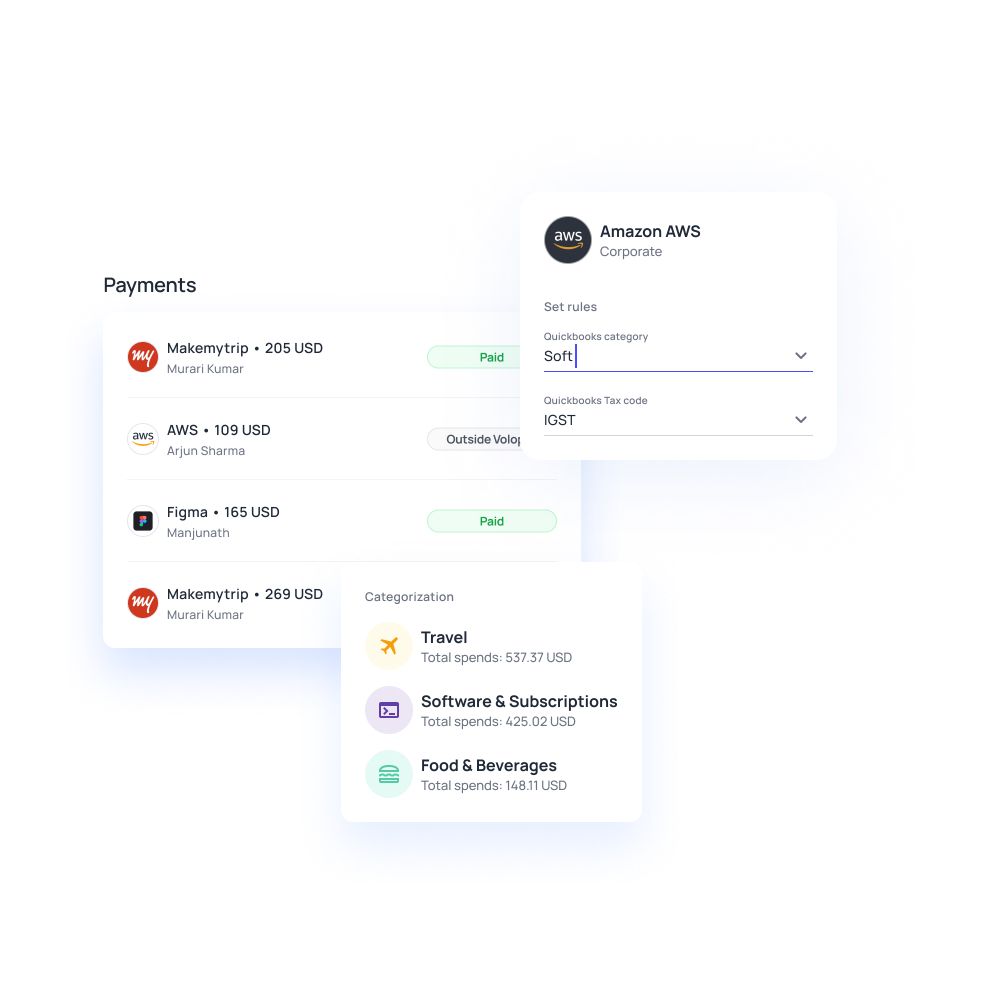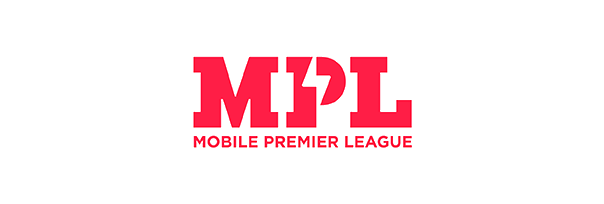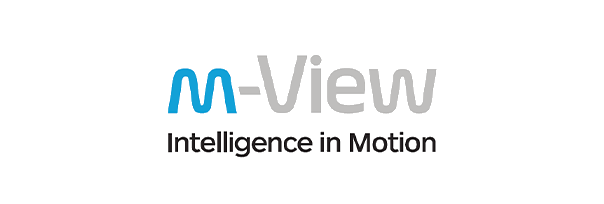Corporate travel management: Essential guide for businesses
Today, businesses rely heavily on travel for success. As the corporate world evolves, so does business travel, becoming more value-driven and tech-savvy. Managing a business trip involves more than just booking flights, accommodations, and transportation; it also includes setting approval guidelines, managing expenses, budgets, reimbursement protocols, and ensuring compliance with corporate travel policies.
We’ll explore the challenges of corporate travel management and how to streamline the process. Effective travel management helps employees make the most of their time on the road while aligning with company goals and regulations.
For employees, work trips should be productive and exciting, not a burden of endless expense report filing. These trips should enhance networking, boost the company's profile, and create memorable experiences, but often, they come with the hassle of managing expenses.
What is corporate travel management?
Corporate travel management entails everything from planning and booking flights, hotels, and transportation to organizing the proper papers and approval methods and mileage tracking and paying for everything essential for a corporate trip. In simple terms, if we were to explain, it is a system for monitoring and organizing business travel.
With managing business travel, it's essential to balance employees' travel needs with the company's financial and other objectives. Some businesses hire specialized travel services to handle this other full-time travel managers.

How does corporate travel management work?
Corporate travel management streamlines the complexities of business travel by centralizing and automating travel-related tasks.
It starts with enforcing company travel policies, ensuring employees book within budget and comply with approved vendors. The process involves coordinating with travel agencies or utilizing travel management software to arrange flights, accommodations, and ground transportation.
A key aspect is negotiating deals with vendors, such as airlines and hotels, to secure corporate rates. Real-time reporting tools provide transparency, allowing accounting departments to track expenses, monitor compliance, and manage budgets effectively, ensuring that corporate travel aligns with financial goals and operational efficiency.
Importance of corporate travel management
Business travel management is critical because it ensures that businesses should get the most out of their travel expenses. It's important to analyze that they are not overpaying for transportation and lodging.
It also specifies how employees plan business travels and guarantees that all travel expenditures are distributed in the company's best interests. A well-managed corporate travel program not only maximizes cost efficiency but also enhances the benefits of business travel, such as improving productivity and fostering employee satisfaction. The most significant factor in effective travel management is ensuring employees' safety.
1. Cost control and savings
Effective business travel management helps businesses control costs by enforcing travel policies, negotiating better rates with airlines, hotels, and car rental agencies, and monitoring expenses in real time.
By consolidating travel bookings through a single platform, companies can take advantage of volume discounts and streamline expense reporting. These cost-saving measures ensure that travel budgets are optimized, reducing unnecessary expenditures and maximizing return on investment.
2. Enhanced traveler safety and security
Corporate travel management prioritizes traveler safety by ensuring compliance with travel policies that include risk assessments and emergency protocols.
Travel management systems offer real-time tracking and communication tools, allowing companies to monitor their employees' locations and respond swiftly in case of emergencies. This proactive approach to safety not only protects employees but also mitigates potential legal and financial liabilities for the company.
3. Increased productivity
With a structured travel management system, employees spend less time on travel arrangements and more on their core responsibilities. Automated booking tools and pre-approved itineraries reduce administrative tasks, while access to preferred vendors ensures smoother travel experiences.
Additionally, travel management platforms often offer mobile apps that provide travelers with real-time updates and support, further enhancing productivity by minimizing disruptions during trips.
4. Improved employee satisfaction
A well-managed travel program boosts employee satisfaction by simplifying the booking process and providing clear guidelines that reduce the stress of travel planning.
Access to preferred vendors and negotiated rates ensures that employees enjoy quality accommodations and services, contributing to a more comfortable travel experience. Additionally, the assurance of safety and support during travel increases employee morale and loyalty, fostering a positive company culture.
5. Improved travel spending analysis and reporting
Corporate travel management systems offer comprehensive tools for analyzing travel spending, enabling businesses to identify trends, monitor compliance, and adjust policies as needed.
Detailed reports provide insights into expenditure patterns, helping companies to make data-driven decisions that optimize travel budgets. This transparency not only aids in financial planning but also ensures accountability, as all travel-related expenses can be tracked and justified.
6. Improved vendor relationships
By consolidating travel bookings and negotiating directly with suppliers, corporate business travel management strengthens relationships with vendors.
These partnerships often result in better service, exclusive deals, and customized travel packages that meet the company's specific needs. Strong vendor relationships also provide leverage during contract renewals, ensuring that businesses continue to receive favorable terms and support, contributing to long-term cost savings and service reliability.
Simplify your travel expense management process
What does a corporate travel manager do?
Corporate travel managers are a vital part of the company. A corporate travel manager is the internal employee of a company, or maybe, an external agent (if you have outsourced your travel system) who oversees and plans the corporate trip for an entire organization.
The central role entails establishing corporate travel policies, which is the make or break point of a company as it involves the rules and procedures for employees to follow. Overall, the travel manager assists the organization in efficiently and effectively navigating worldwide business travel.
Some of the activities that a travel manager facilitates are
1. Planning and coordination of travel itineraries
A corporate travel manager is responsible for planning and coordinating travel itineraries that align with company policies and budgets.
This involves booking flights, accommodations, and transportation, ensuring that all travel details are arranged seamlessly. The manager works closely with employees to accommodate their schedules and preferences while maintaining cost efficiency, ensuring that every trip runs smoothly and efficiently.
2. Managing travel budgets and expenses
Corporate travel managers oversee the allocation and monitoring of travel budgets, ensuring that expenses are kept within approved limits.
They track spending, reconcile travel expenses, and implement cost-saving strategies to maximize the company’s return on investment. By analyzing spending patterns and optimizing travel arrangements, they ensure that travel budgets are utilized effectively without compromising on quality or compliance.
3. Ensuring traveler safety and security
Ensuring the safety and security of employees during travel is a top priority for corporate travel managers. They implement risk management strategies, provide travel advisories, and ensure compliance with safety protocols.
Managers also coordinate with security teams and external agencies to offer real-time support and assistance, helping travelers navigate emergencies and ensuring their well-being throughout their journey.
4. Negotiating and managing vendor relationships
Corporate travel managers negotiate contracts and build relationships with travel vendors, such as airlines, hotels, and car rental companies. They secure favorable terms, discounts, and added benefits that align with the company’s travel needs.
By maintaining strong vendor relationships, they ensure reliable service, preferred pricing, and enhanced travel experiences for employees, contributing to both cost savings and operational efficiency.
5. Implementing and utilizing an expense travel system
A key role of the corporate travel manager is to implement and utilize a travel expense management system. This system automates the booking process, expense tracking, and reporting, including automated expense reporting, providing a centralized platform for managing all aspects of corporate travel.
The manager ensures that the system is user-friendly, integrates with other financial tools, and is used effectively by employees, streamlining the travel process and improving accountability.
6. Developing and enforcing travel policies
Corporate travel managers are responsible for developing comprehensive travel policies that outline the company’s guidelines for booking, spending, and traveler behavior. They enforce these policies to ensure compliance, reduce costs, and mitigate risks.
By regularly reviewing and updating these policies, the travel manager adapts to changing business needs and travel trends, ensuring that the company’s travel program remains efficient and effective.
7. Enhancing traveler experience
A corporate travel manager focuses on enhancing the traveler experience by ensuring that travel arrangements are convenient, comfortable, and efficient.
They consider the needs and preferences of employees, offer support during travel, and resolve any issues that may arise. By prioritizing traveler satisfaction, the manager helps improve employee morale and productivity, contributing to a positive and supportive corporate culture.
8. Data analysis and reporting
Corporate travel managers use data analysis to monitor travel patterns, spending, and compliance. They generate reports that provide insights into travel behavior and costs, helping the company identify opportunities for improvement and cost savings.
By leveraging data, travel managers can make informed decisions, optimize travel policies, and provide detailed feedback to stakeholders, ensuring the travel program aligns with the company’s strategic goals.
4c's of corporate travel management
Every business needs to master the four c's of corporate travel management if they want to streamline their travel spending.
Collaboration
Understanding the reasons for overspending is crucial, as it can consume up to a third of a company's travel and expense budget. Employees must work with corporate travel managers to grasp travel policy guidelines, and CFOs should partner with them to develop strategic policy improvements.
CFOs
Effective travel management will only be possible if CFOs are involved in understanding the technicalities of a travel policy or instead of creating a business travel policy. Because if it comes down to cost-cutting, they should know where the travel spend is allocated and why.
Cost
In business, expenses like office supplies, vendor payments, ads, and travel are crucial. Although travel is a smaller part of the budget, mismanagement can impact it significantly. Corporate travel managers focus on two aspects: spending less and achieving higher ROI. Optimizing pricing helps organizations fund more business trips without increasing their budgets.
Culture
Whenever we talk about a good environment, culture plays an essential role. Businesses should encourage a positive corporate travel culture for employees to be their most productive selves; Businesses may empower their employees with tailored travel experiences by utilizing effective corporate travel management software.
What is travel management system?
Travel management systems help companies streamline their travel processes. It is software that allows you to plan, track, analyze business trips and provide travel inventory, policy, and reporting.
For companies that still follow old and traditional managing expenses, the system smoothens out those manual work and automates them altogether.
A travel management program is built on four pillars:
● Maintaining employee safety
● Boosting program cost-effectiveness
● Increasing employee productivity
● Increasing transparency

Manage your business travel expenses effortlessly with Volopay
How does travel expense management software work?
Travel expense management software automates and streamlines the process of managing and simplifying corporate travel expenses.
By digitizing receipt collection, simplifying approvals, and integrating with financial systems, this software enhances efficiency, accuracy, and transparency in travel expense reporting. It provides businesses with the tools to manage travel budgets effectively while improving the overall traveler experience.
1. Expense reporting and digital receipt management
Travel expense management software simplifies expense reporting by allowing employees to upload and categorize receipts digitally. Instead of manually submitting paper receipts, employees can use their smartphones to capture and submit receipts directly into the system.
The software automatically organizes these expenses by category, date, and amount, reducing the administrative burden and ensuring accurate record-keeping for both the traveler and the accounting department.
2. Approval workflow automation
The software automates the approval workflow by routing expense reports to the appropriate managers or departments based on predefined rules.
Managers can review, approve, or request modifications with just a few clicks, expediting the approval process and ensuring compliance with company policies. Automated workflows reduce delays, minimize errors, and maintain a clear audit trail, improving the overall efficiency of the expense management process.
3. Integration with corporate credit cards and business accounts
Integration with corporate credit cards and business accounts allows the software to automatically import transaction data, matching expenses with corresponding receipts.
This feature eliminates the need for manual data entry, reduces the risk of errors, and ensures that all expenses are accurately accounted for. By seamlessly linking spending data with travel expense reports, the software enhances financial transparency and streamlines the reconciliation process.
4. Reimbursement processing and efficiency
Travel expense management software speeds up reimbursement processing by automating the calculation and approval of eligible expenses.
Once an expense report is approved, the system triggers the reimbursement process, ensuring that employees are promptly compensated. This automation not only improves employee satisfaction but also reduces the administrative workload for finance teams, ensuring timely and accurate payments.
5. Advanced analytics and reporting tools
The software offers advanced analytics and reporting tools that provide insights into travel spending patterns, policy compliance, and budget utilization.
These tools enable companies to track key metrics, identify cost-saving opportunities, and make informed decisions about future travel policies. Detailed reports can be customized to meet the specific needs of different departments, providing valuable data to optimize travel programs and control expenses.
6. Mobile access
Mobile access is a crucial feature of travel expense management software, allowing employees to manage expenses on the go.
With mobile apps, travelers can capture receipts, submit expense reports, and monitor approval status from their smartphones or tablets. This flexibility ensures that expense reporting is convenient and timely, reducing the risk of lost receipts and delayed submissions while enhancing the overall user experience.
7. Integration with an accounting system
Integration with an accounting system is essential for seamless financial management. Travel expense management software can sync with popular accounting platforms, ensuring that all travel expenses are accurately recorded and reflected in the company’s financial statements.
This integration eliminates manual data entry, reduces the risk of errors, and ensures that the company’s financial records are always up to date, facilitating smoother financial audits and reporting.
8. User experience and support features
A user-friendly interface and robust support features are vital for the successful adoption of travel expense management software. The software should be intuitive, making it easy for employees to navigate and submit expenses with minimal training.
Additionally, access to customer support, user guides, and troubleshooting resources ensures that any issues can be quickly resolved, minimizing disruptions and maintaining user satisfaction.
Challenges in managing corporate travel
Travel costs aren't always the most critical portion of a company's budget. Employees think that if it isn't a core component of their job, they will find various ways to avoid adhering to the rigorous standards. And instead, focus on the element of their job description.
They avoid specific guidelines or steps because there are too many rules, approval hurdles, and complicated processes. Challenges to managing corporate travel range from operating costs, rigid policies to not giving employees freedom while planning a corporate trip.
Minimizing errors
Sometimes fixing the errors takes a lot of time. Employees sometimes fill in incorrect expenses, which may not match your credit card statements. It involves going back and forth to your invoices, receipts, and if any receipts go missing, it's annoying.
It's annoying in terms of figuring out who approved the expense. So to avoid any errors and save up hours, it's essential to invest in good automation software that avoids the errors and duplication of travel expenses.
Too many rigid rules
For employees, a business trip is an opportunity for new experiences and to build a business. So employees must plan their journey according to what's best for them. Too many rules, like forcing them to live in a particular hotel they don't want.
If employees feel compelled to choose specific options, some of the allure is lost, And they may not be able to focus on work assignments with the same excitement. Doing this will provide employees with autonomy and will lessen the burden of the finance team on booking itineraries for every employee.
Expense claims
Filing expense claims is the one thing that employees dislike. Expense reports take a lot of admin if employees pay from their pocket or through company credit cards. Every time employees come back from the trip; they have to spend hours filling the expense report and avail for reimbursement the next day.
The thing with using company credit cards for managing travel expenses is that keeping track of receipts becomes a nightmare for employees and the finance team. The finance team has to collect those receipts every month to reconcile the expenses with the credit card statements And later work to settle employees' claims.
To lessen the burden for both payment cards are the best way to settle expenses. They log in every payment the moment you make it, so there is no more reconciliation or filing expense report headaches.
Monitoring and tracking approvals
Managing travel requests differ for small to large businesses. Large corporations might hire a travel agency to manage that corporate travel, wherein the small businesses' workload comes down to the person in charge of the financial or administrative aspects of the company.
What if you have to go on several business trips? Depending on your company's size, you may find that traveling becomes quite cumbersome compared to how easy it was when you were managing things on a smaller scale. At times like these, having suitable systems in place can help ensure you don't fall behind or delay the approval process.
Otherwise, it could mean missing out on essential things, which means fewer positive outcomes relating directly to your project's results. Sometimes it may also happen that one team member from one department may send you trip requests through different sources simultaneously.
Ensuring compliance with regulations and policies
Managing corporate travel compliance involves navigating a complex web of internal policies, industry regulations, and legal requirements. Companies must ensure that all travel bookings and expenses adhere to established guidelines, including budget limits, preferred vendors, and safety protocols.
Compliance challenges can arise from employees booking outside approved channels or misunderstanding policies, leading to potential overspending or regulatory breaches. Maintaining consistent enforcement and providing clear, accessible guidelines are crucial for mitigating these risks.
Optimize travel expense management with Volopay
How to automate travel expense management?
Sometimes unplanned travel like last-minute air booking, hotel booking can be hard to pull together, And the challenges seem to vary. Frequent modification or cancellation of flights can add to a company's already enormous travel costs.
Automation of the travel expense management process helps your finance team and employees:
● In managing all employees and their expenses through an easy-to-use interface.
● Regular detailed reports help keep track of your spending.
● A software that allows you to reconcile your trip expenses easily.
● Pay straight from the company wallet to save the headache of submitting lengthy reimbursement paperwork.
And with all of this, Automation leads to fewer errors in travel arrangements, and the administrative crew is free to focus on more vital tasks. Furthermore, if employees may arrange their excursions, they can design the most convenient vacation for them.
Built-in travel policy
A travel policy is an effective tool to manage employees' travel expenses. No matter how good your travel policy is, it takes time for employees to go through every detail in that lengthy document. And if they do, they might skip some steps, ignore some essential rules, ask too many questions if they don't understand, and forget those minute details. This could lead to mistakes.
But what if you automate it? That means you can incorporate your travel policy into a travel management system, which eliminates the need for anybody to remember it or ask questions. They follow the procedure from beginning to end, doing what is needed of them. Remember that compliance will be significantly more straightforward if the policy is well-balanced and flexible than if it is excessively rigid.
Set spending limits
This is the best way to control your budget. How. Apart from the flights and overnight accommodation, employees might pay for daily expenses such as meals and cabs out of pocket or with a business card; depending on your firm's policies, these small costs can quickly add to your travel budget.
So, the finance team can set spending limits for each card according to the budget. And not only this, they can even restrict the available vendors. And the budget for traveling employees is set slightly higher than the other employees. And for that, your finance manager can increase your pre-approved sum to match your per diem. The primary purpose of setting limits on cards is to provide controlled access to company funds to the employees. They can spend freely and fast, but never over the limitations.
Create approval workflows
Approving funds requests or trip expenses is another time-consuming task. With the automation tool, you can request funds and get them approved in real-time just by using the mobile app, web app, and even just from email.
You can create approval workflows in 3 ways
● No approval is required for any trip
● Approval is required for some trips
● Approval is required for every trip.
You should have a simple approval process in place. If an employee tries to book a trip outside of policy, they should be able to request approval from within the app, And once they send the approval request, the admin should be notified instantly. There's no need to send emails with all the expense details for approval.
The most crucial step is to choose who will approve the trips: the finance manager, corporate travel manager, CFO, or numerous department heads. Some systems offer a multi-level approval process to streamline requests, wherein you 2-3 people to approve the requests. This procedure could save your company time spent on back-and-forth emails between team members and supervisors and hours spent examining the details of budgets per trip type.
Eliminate expense claims
The most challenging work a travel automation software lessens is filing expense reports. So, if there is no filing of expense reports, no expense claims, You know employees hate expense reports altogether.
As no one wants to come after a long trip and create long expense reports and then wait for months to attain reimbursement, finance departments have to reconcile payments with credit card statements, chase receipts, and instruct the entire firm on complying with the guidelines.
The sad part is, what if employees lose their receipts? A finance manager has to go back and check credit card statements amongst the thousands of other transactions and look for who made the payment and what? Employees can quickly file a claim with the tools by clicking on the receipt and sending it in for review. So, giving employees access to the company's funds from the beginning of their trip takes away a lot of pain and admin work and takes away the headache of losing expense receipts.
Integration with corporate cards
Integrating corporate cards into travel expense management systems automates the capture and reconciliation of travel-related expenses. Transactions made with corporate cards are automatically imported into the expense management platform, where they can be matched with submitted receipts and categorized according to company policies.
This integration eliminates manual data entry, reduces errors, and speeds up the approval and reimbursement processes, ensuring a more streamlined and accurate expense management workflow.
Managing employee travel expenses with Volopay
Expense management software like Volopay allows you to pay with virtual and physical cards to keep track of your travel bookings and payments in one spot. You can use a virtual card generated by the platform to book flights or accommodations online. You have a physical, prepaid card to pay for when you're on the go, maybe an Uber. As a result, employees are never required to pay for anything with their funds.
Now, it's decided that fixing your travel issues is about improving how your company spends. It would help if you had comprehensive expense management software for your business that manages travel expenses and other expenses.
It provides real-time insights into your travel spending, so you don't have to track payments later. Combine this expense management approach with payment methods such as prepaid and corporate expense cards. Both these cards include pre-approvals, spending limits, so you don't have to look into travel policy every time you make payment.
1. Streamlined expense tracking with virtual and physical cards
Volopay simplifies expense tracking by offering both physical and virtual cards tailored to corporate needs. Employees can use these cards for travel expenses, with each transaction automatically recorded and categorized within the Volopay platform.
This eliminates the need for manual expense entry and allows for real-time monitoring of spending. The seamless integration of card usage with expense tracking ensures accuracy and efficiency, making it easier for companies to manage travel budgets.
2. Eliminating out-of-pocket expenses for employees
Volopay removes the burden of out-of-pocket expenses for employees by providing them with corporate cards for all travel-related purchases.
This approach ensures that employees don't have to use personal funds and wait for reimbursements, which can be time-consuming and inconvenient. By covering expenses upfront, Volopay improves the overall travel experience and reduces financial stress, leading to higher employee satisfaction and compliance with company policies.
3. Enhancing travel expense management
Volopay enhances travel expense management by offering a centralized platform where all travel-related transactions are tracked and managed. The system integrates booking details, expense reports, and policy compliance checks, providing a comprehensive view of travel expenses.
This holistic approach streamlines the management process, allowing finance teams to efficiently monitor and control spending, enforce travel policies, and ensure that all expenses align with corporate budgets and guidelines.
4. Real-time insights into travel spending
Volopay provides real-time insights into travel spending, enabling companies to monitor expenses as they occur. With instant access to transaction data, finance teams can quickly identify trends, spot irregularities, and take corrective actions if necessary.
This immediate visibility helps in maintaining budget control, ensuring compliance, and making informed decisions. The ability to track spending in real time also supports proactive financial planning and better resource allocation.
5. Automated pre-approvals and spending limits
Volopay automates the process of pre-approving travel expenses and setting spending limits, ensuring compliance with company policies. Managers can set predefined limits for different expense categories and approve transactions before they occur, reducing the risk of overspending.
This automation not only streamlines the approval process but also empowers employees to make travel-related purchases confidently, knowing that they are within approved guidelines. This feature simplifies management oversight and enhances overall financial control.
Bring Volopay to your business
Get started now
FAQs
Automation streamlines booking, expense tracking, and approvals, reducing manual tasks and errors. It ensures faster processing, enhances compliance, and provides real-time data, boosting overall operational efficiency.
Security considerations include ensuring employee safety through risk assessments, real-time location tracking, emergency response plans, and data protection for travel bookings and expense reporting.
Businesses can measure ROI by analyzing cost savings from negotiated rates, improved compliance, reduced processing times, and enhanced employee productivity and satisfaction from streamlined travel processes.
Businesses can use a travel management system to tailor travel options based on individual preferences, offer flexible booking choices, and ensure preferred vendors and accommodations align with traveler needs.
A travel management system helps with cost savings by enforcing policies, automating approvals, negotiating better rates with vendors, and providing detailed expense tracking to identify and eliminate inefficiencies.
Businesses can ensure compliance by clearly communicating travel policies, using automated approval workflows, setting spending limits, and regularly monitoring and analyzing travel behavior through the management system.








Trusted by finance teams at startups to enterprises.